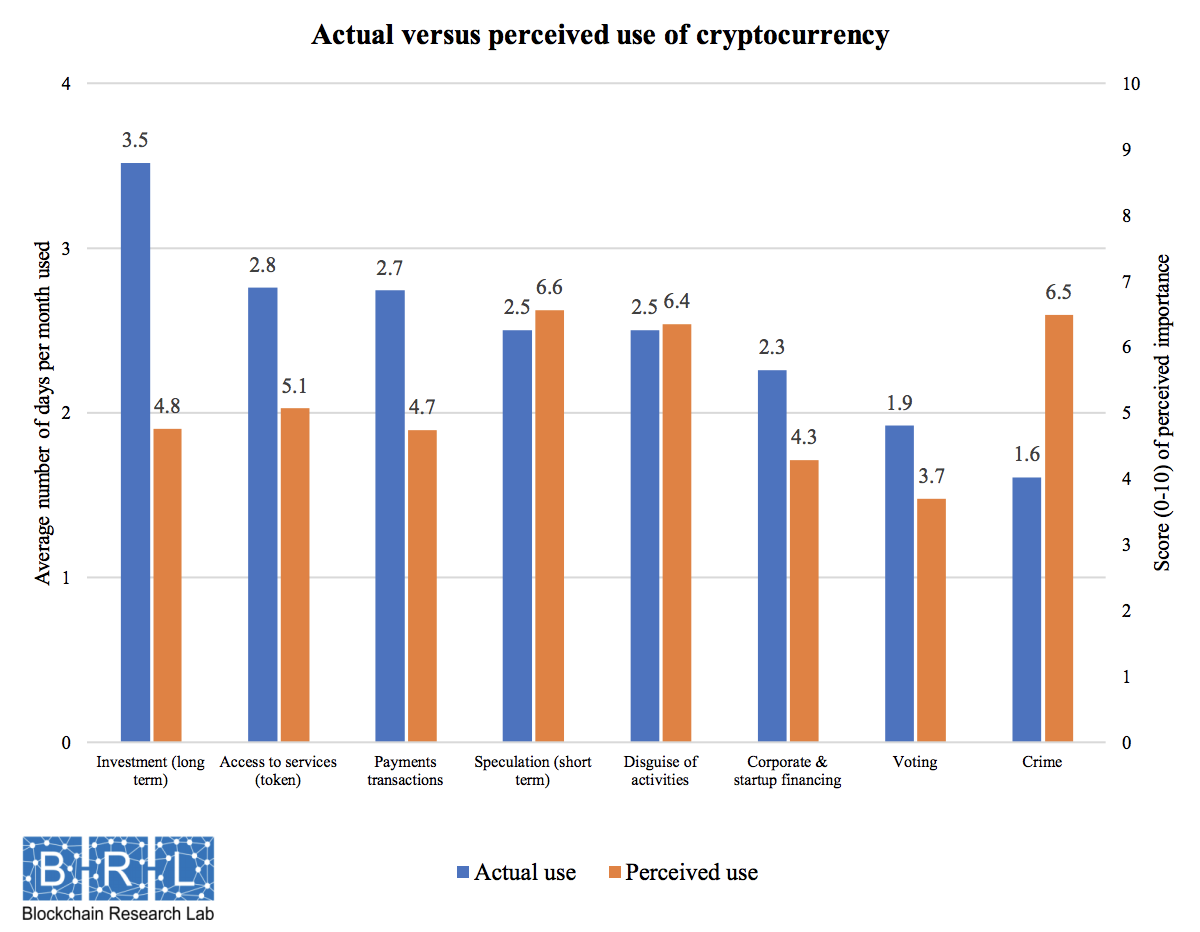Perceived and Actual Use of Cryptocurrencies: Germany Q1 2019
Based on a representative survey among 3,864 German adult Internet users, this report presents reliable insights on the respondents’ faith in, and the challenges associated with cryptocurrencies, as well as on their perceived vs. actual use. Most respondents were introduced to cryptocurrencies by their private and professional environment (57%), followed by media news (27%) and advertising (14%). General faith in cryptocurrencies is rather low, with an average score of 3.62 on a scale of 0 to 10, though there are large differences across various subgroups. Respondents who have at some point owned cryptocurrencies and people who consider themselves knowledgeable about cryptocurrencies have a higher level of trust. For current and former owners, there is a positive correlation between the level of trust and the level of self-reported knowledge about cryptocurrencies, whereas the correlation is reversed for non-owners.
Regarding the challenges for the adoption of cryptocurrencies, the highest rating was found for less knowledgeable respondents with respect to price fluctuations (6.9 on a scale of 0 to 10); more knowledgeable respondents considered the risk of manipulation to be the greatest challenge (6.7). Among the perceived use cases for cryptocurrencies, short-term speculation is rated the highest, whereas voting received the lowest scores. However, we find differences between current owners, former owners, and non-owners of cryptocurrencies. Cryptocurrencies are actually used most frequently for investment purposes (on 3.5 days per month), access to services (on 2.8 days) and payment transactions (on 2.7 days).

The actual use of cryptocurrencies in some respects differs substantially from the assumed use. This indicates a pronounced information deficit within the population and shows the need for objective information on cryptocurrencies. Furthermore, the finding illustrates that cryptocurrencies are not yet widely accepted by the broad population. The general public’s knowledge about cryptocurrencies currently lags behind the rapid evolution in this field. Besides more information about cryptocurrencies in general, the population would also benefit from more wide-spread interaction with the subject in order to reduce prejudices. Their listing on established platforms such as the Stuttgart stock exchange helps to make cryptocurrencies appear gradually less exotic and to attract new users. Further research activities could compare the trust levels and trading of cryptocurrencies to those of traditional securities in order to verify the importance of cryptocurrencies in comparison with other asset classes.
Link to the report: “Perceived and Actual Use of Cryptocurrencies: Germany Q1 2019”
Authors: Blockchain Research Lab